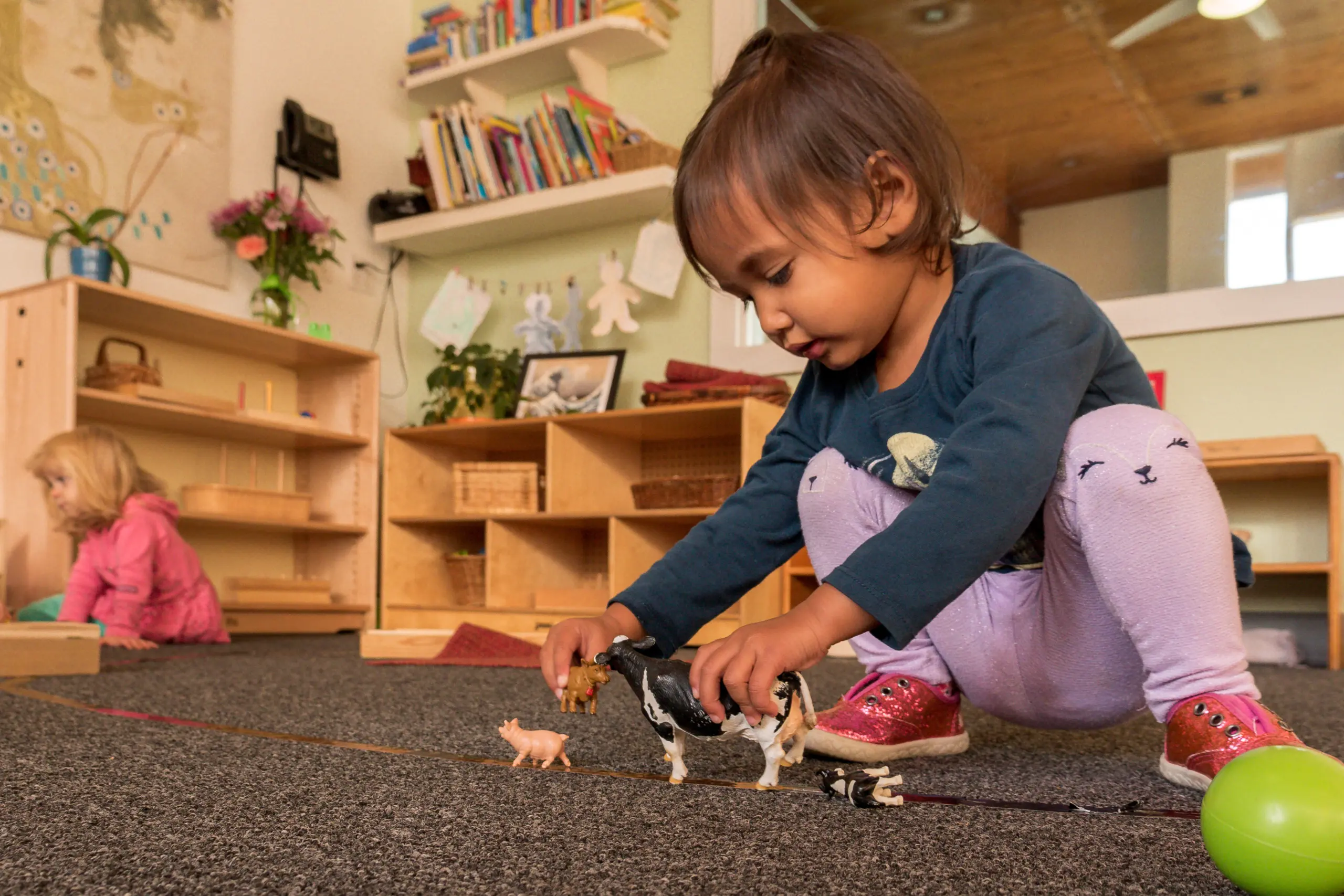Montessori Toddler Program (18 Months – about 3 Years)
Where Independence, Curiosity, and Connection Take Root
At Montessori of Alameda, our Toddler Community is thoughtfully designed for children ages
18 months to about 3 years—a time of tremendous growth and transformation. Here, toddlers
begin to assert their independence, develop language, explore emotions, and build
meaningful connections with others.
Everything in our Montessori toddler environment is intentionally prepared to support the
child’s natural desire to “do it myself.” From dressing and toileting to serving snacks and
cleaning up, children are empowered to take an active role in their daily routines. These
moments of independence build confidence, concentration, and a sense of belonging.
Our classrooms are warm, beautiful spaces—called prepared environments—where toddlers
feel safe, engaged, and respected. With child-sized furniture, real materials, and soft lighting,
the space feels like home. Toddlers explore freely, developing coordination through activities
like pouring, balancing, and climbing, while their blossoming language is supported by rich
conversation, songs, and storytelling.
Behavior is approached as a learning opportunity. Using tools from Conscious Discipline and
Positive Discipline, our trained guides support toddlers in naming their feelings, solving
problems, and making respectful choices. We guide, helping children build self-regulation
from the inside out.
Our toddlers enjoy frequent outdoor time in four separate, age-appropriate play areas. Our
play structure, tricycles, and scooters promote gross motor development and joyful
movement. Children care for raised garden beds filled with edible flowers and vegetables,
learning to appreciate and connect with nature. Just steps away, our covered sports court
invites games, imaginative play, and physical expression year-round.
At Montessori of Alameda, the toddler years are a time of wonder, discovery, and meaningful
growth—where children are seen, supported, and celebrated for exactly who they are.



